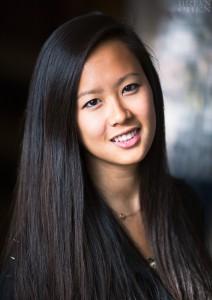Year: Junior
Major: Psychology, Legal Studies
Minor: Gender Studies
CFS Program: Legal Field Studies
Four weeks ago, I began working at the Center on Wrongful Convictions. Since then, I’ve become friends with the rest of my team, attended conferences and symposiums with Supreme Court journalists and counselors, taken many Instagram pictures of the beautiful view from the windows, tried all the amazing lunch spots near Northwestern’s law school, visited a halfway house for ex-prisoners, and even met a lovely woman who was recently exonerated with the Center’s help.
The mission of the Center on Wrongful Convictions is to exonerate innocent people and reform the criminal justice system by raising awareness about the causes and consequences of wrongful convictions. My supervisor, Dolores Kennedy, was actually part of the original committee that led to the founding of the Center on Wrongful Convictions in 1998. The Center also helped to create the National Registry of Exonerations, which is a database of exonerations in the U.S. since 1989 (there are over 2,000).
Since its foundation, the Center has freed 36 innocent people from prison. This is quite an achievement, but when you look at the statistics, things become a little disheartening. The Center receives about 200 letters a month. In one year, the Center takes about 4-5 cases total. That’s an acceptance rate of about 0.002%! In our first week at the Center, we sifted through incoming letters from prisoners who wanted the Center to take on their cases, and it was a sobering moment when we realized that the Center would not be able to help with most of the cases that flooded into the office. Dolores told us that every time the center receives media attention after exonerating someone, the influx of letters increases for a while. Most of these letters are rejected because the CWC’s resources are extremely limited and it can take many years to exonerate someone.
An astounding fact that we learned in our first week is that many exonerees are just thrown back into the world without much help or resources for their reentry into society. Some states have no compensation laws for the wrongfully convicted. I find it impossible to imagine being stuck in prison for years, especially during the prime years of my life (some exonerees were in prison from their late teenage years until their 40s and developed into adults behind bars), all the while knowing that I was innocent, and then finally being freed, years later, and not receiving so much as an apology, let alone any compensation for the time that I had been forced to serve. I am in awe that many of these exonerees have remained mentally stable and were able to pull themselves back on their feet and restart their lives. I thought about our justice and prison systems and their flaws when one of the exonerees said in a documentary that when he was exonerated, he realized he was one of the strongest people ever, to have endured that treatment and still come out on the other side.
Working at the CWC has already shifted my perspective on the justice system. I’m not completely pessimistic about the system, but I now realize that many innocent people can easily fall through the cracks, and that it’s easier said than done to free the innocent from prison. So far, this internship has solidified my desire to become a lawyer and eventually do pro bono work. In the coming weeks, I hope to continue making meaningful connections and progress on researching cases for the exoneration database.
